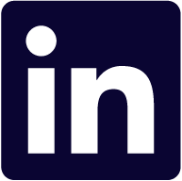Second job interview - tips and tricks

Remember an application procedure is a two-sided process. The company is interested in you, but what do you think of them? Use the second job interview to meet people, ask questions or visit the office. Also try to taste the culture of the organization; do the employees seem happy, bored or overworked? But above all, do you feel comfortable in this organization?
What to expect in a second interview?
During your first interview, you will probably have met with someone from HR. At the second interview stage, you will most likely be meeting someone more senior within the business, the person who will ultimately have the final say on the hiring decision.
Try to get clarity about the structure of the second job interview in advance. For example, do you speak to one person - perhaps your potential future manager - or will you participate in a panel discussion?
The second job interview will focus on:
- Do you have the skills required?
- Are you the right 'fit' and will you be able to work well with others?
Personality and personal impact are more important than diplomas at this stage. Be yourself and show your personality in an enthusiastic, positive and honest way.
Be prepared the questions will be more thorough than in the first job interview. You will have to be more complete in your answers.
How to prepare for a second interview?
A thorough preparation gives you confidence and reduces the chance of surprises.
Use the relevant information you have gathered in preparation for the first job interview. What highlights were being discussed? Be prepared to answer questions that were asked in the first interview, in a broader and stronger way. Be prepared to discuss important topics in more detail. For example, study professional publications, news items or the website and the annual report of the organization. Get to know the organization's mission and objectives and learn more about the requirements of a candidate. Consider how your skills, interests and experience are related to this.
Questions during a second job interview
Think objectively about what the interviewer is trying to find out here, and how you can provide them with what they are looking for.
Be innovative; think about new examples and questions.
In the second job interview will be more space to tell about yourself and to express your ideas.
You can show your enthusiasm and interest with the questions you ask. This could be questions about your role, the team you will be working in or the organization. Some examples are:
- What is expected from me during the first six months?
- Is this a new role? If not, how did it originate?
- How do you define the corporate culture?
- What possibilities are there for my professional development?
- How does the team fit in with the overall structure of the organization?
Salary and conditions of employment
For many, negotiating salary and working conditions are two of the most challenging parts of the job application process. Often this topic is addressed at the end of the second job interview and when you belong to the select group of candidates they prefer. If not, this will be discussed during the job offer.
What are the next steps?
At the end of your second interview, the interviewer should confirm the next steps but if not, you can politely ask. Remember to thank them for their time, and send a follow-up email to the interviewer to reiterate that you enjoyed meeting with them and are still interested in the position.





